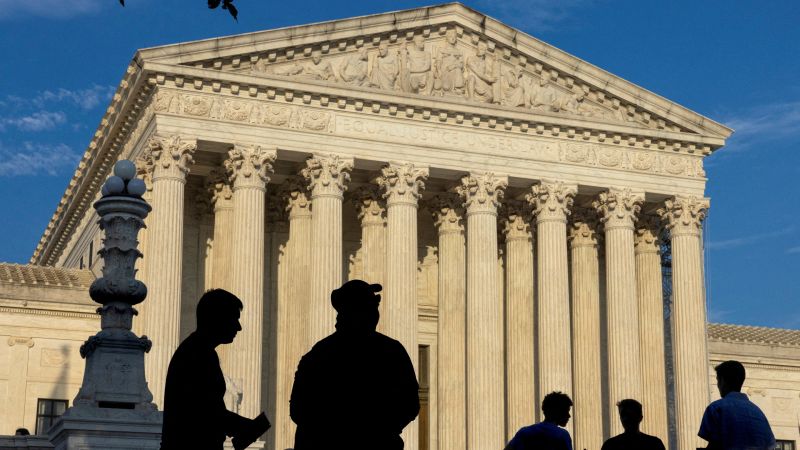
Washington
CNN
—
The Supreme Court on Monday declined to settle the major constitutional questions raised in a blockbuster dispute over laws approved in Texas and Florida intended to protect conservative viewpoints on social media, meaning the laws will remain blocked for now while lower courts continue to sort out the constitutional questions involved.
The decision delays a final ruling on whether it is unconstitutional for states to pass laws preventing online platforms from moderating their own websites.
It also reflects some of the difficulty the justices faced in trying to understand the reach of the Florida and Texas laws, which proponents said would help guarantee the freedom of internet users’ speech but that opponents said infringed on platforms’ own First Amendment rights and would make social media an unworkable mess.
Neither of the two appeals courts that produced the cases before the justices looked at the First Amendment issues involved correctly, wrote Justice Elena Kagan in an opinion joined in full by Chief Justice John Roberts and Justices Sonia Sotomayor, Brett Kavanaugh and Amy Coney Barrett.
Kagan’s opinion, however, reserved special criticism for the US 5th Circuit Court of Appeals, saying that in ruling for the state of Texas, that appeals court showed a “serious misunderstanding of First Amendment precedent and principle.”
The cases were viewed as having the potential to affect how millions of Americans get their news and information, as well as whether sites such as Facebook, Instagram, YouTube and TikTok should be able to make their own decisions about how to moderate spam, hate speech and election misinformation.
Attorneys for Texas and Florida, along with an industry group known as NetChoice, focused substantial attention on how the state laws would affect the content feeds on apps such as Facebook, Instagram and TikTok.
The states argued the laws simply aim to treat social media platforms like utilities, requiring that they carry all content neutrally and without giving preference to one viewpoint over another.
By contrast, NetChoice and its allies described the laws as government interference in decisions by private organizations about what speech to host, characterizing social media platforms as more akin to newspaper publishers than telephone lines.
Other groups argued in friend-of-the-court filings that forcing platforms to treat all content equally would ultimately promote more spam, hate speech, misinformation and adult content in social media feeds, since creators of that content could claim under the state laws that their viewpoints are being discriminated against.
In Monday’s decision, Kagan wrote that even as both sides battled over what future Instagram or TikTok feeds could look like, there is a whole universe of platforms and technologies that the state laws may affect, but which the lower courts failed to consider.
“The laws appear to apply beyond Facebook’s News Feed and its ilk,” Kagan wrote. “But it’s not clear to what extent, if at all, they affect social-media giants’ other services, like direct messaging, or what they have to say about other platforms and functions.”
Because the lower courts did not grapple with that question, it is premature for the Supreme Court to weigh in on the state laws as a matter of principle, Kagan said.
This story is breaking and will be updated.
This post was originally published on this site be sure to check out more of their content







